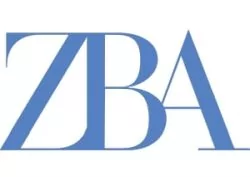Introduction
In Gemini Bay Transcription Pvt. Ltd. vs. Integrated Sales Service Ltd. and Anr the Supreme Court was confronted with an interesting question i.e., whether an award could be enforced against a party who was not a signatory to the agreement containing an arbitral clause.1 In this case, the Supreme Court dismissed the objection to the enforcement of a foreign award on the ground that it was rendered against a party who was not a signatory to the arbitration agreement. By this decision the Supreme Court permitted enforcement of an award against a person not a signatory to the arbitration agreement.
The Representation Agreement
The controversy in this case arose out of a representation agreement ("Representation Agreement") entered between Integrated Sales Services Ltd. ("ISS") and DMC Management Consultants Ltd. ("DMC"), which provided for arbitration under Delaware law. The Representation Agreement contemplated ISS assisting DMC in soliciting prospective customers in return for a fixed percentage commission on revenues from such customers.
Alter-Egos
ISS duly referred two customers to DMC. After a period of eight years, DMC terminated these two contracts and simultaneously contracted for the same services with the same two customers via an affiliate company, Gemini Bay Consultants ("Gemini Bay"), registered in the British Virgin Islands, which was owned and controlled by the chairman of DMC. Gemini Bay in turn outsourced/subcontracted its obligations to an entity in India, namely, Gemini Bay Transcription Ltd. ("Gemini Transcription").
ISS on learning that the business sourced by it had been diverted to an affiliate company commenced arbitral proceedings against DMC its contractual counterpart and also Gemini Bay and Gemini Transcription, who it alleged were the alter egos of DMC. ISS' grievance was that the agreements were intentionally terminated by DMC so as to reroute the business to new entities to avoid payment of commission to ISS under the Representation Agreement.
ISS argued that the chairman of DMC was in absolute control and made all key decisions in the management and functioning of DMC and the Gemini entities. ISS claimed that DMC and Gemini Transcription had the same employees and consultants. ISS accordingly submitted that Gemini Bay and Gemini Transcription being alter-egos of DMC were bound by the arbitration clause in the Representation Agreement.
Arbitral Award
The sole arbitrator on considering the evidence found that the chairman of DMC exercised complete control over all the Gemini companies. The arbitrator held that Gemini entities were created by DMC to avoid payment of commission to ISS under the Representation Agreement. Applying Delaware law, the corporate veil was lifted and an arbitral award was passed jointly and severally against DMC and the Gemini entities.
Enforcement Proceedings before the Bombay High Court
Enforcement of this award was opposed by the Gemini entities on the ground that they were not signatories to the arbitration agreement. DMC resisted enforcement as being violative of Indian public policy. The Single Judge agreed with the Gemini entities and ruled that the award could not be enforced against them as they were not signatories to the arbitration agreement. The court however allowed enforcement against DMC by holding that the arbitration award was not violative of Indian public policy.
This decision was appealed to a Division Bench of the Bombay High Court. The Division Bench after examining Delaware law on lifting of the corporate veil concluded that the arbitrator had correctly applied the alter-ego principle whilst passing the award against the Gemini entities. The Single Judge's view was disapproved and set aside. This decision was appealed to the Supreme Court by DMC and the Gemini entities.
Supreme Court
The Supreme Court dismissed the appeals and endorsed enforcement of the award against both DMC and the Gemini entities, but in doing so, explained and re-emphasized the role of an enforcing court under the New York Convention on the Recognition and Enforcement of Foreign Arbitral Awards ("NYC").
The Supreme Court rejected the preliminary objection by DMC and Gemini entities that ISS had failed to discharge the burden of proving that the arbitral award could be enforced against a non-signatory to the arbitral agreement. The Supreme Court explained that the only evidence contemplated by the Indian Arbitration and Conciliation Act of 1996 ("Arbitration Act") for enforcement of a foreign award were the formalities provided by Section 47(1) (c) which was based on Article IV of the NYC. The Supreme Court specified six ingredients which make an award a foreign award (such as- the dispute is between persons arising out of a legal relationship that is commercial; the dispute referred to arbitration is within the scope of the arbitration agreement whether contractual or not; the award must be an NYC award etc.,). The Supreme Court held that these ingredients can be ascertained by simply looking at the contents of the award and verifying the notifications issued by the Central Government in relation to NYC countries. The Supreme Court accordingly ruled that the burden of proof on an applicant seeking enforcement of an NYC award was procedural and a mere formality and did not extend to leading evidence.
Leave to Adduce Oral and Documentary Evidence
The Supreme Court gave short shrift to the Gemini entities argument to adduce oral and documentary evidence to demonstrate that the foreign award was not enforceable against them. The Supreme Court held that the role of the enforcing court under the NYC was restricted to scrutinizing the award and nothing else- the overriding objective being determining enforcement in a summary manner as speedily as possible.
Invalidity of Arbitration Agreement
The Gemini entities argument that they were not bound by the arbitration agreement as they had not signed the Representation Agreement, was rejected.
The Supreme Court reasoned that only a signatory to an agreement can resist enforcement on the ground that the agreement is invalid (such as incapacity of the signatory, fraud, coercion etc.,). This reasoning according to the Supreme Court was supported by Section 48(1)(a) of the Arbitration Act, which requires any challenge to the award to be mounted by "parties to the agreement".
In contrast, Section 44 of the Arbitration Act defines a foreign award as an "arbitral award on differences between persons". The Supreme Court whilst noting the difference in wording observed that a foreign award can be binding on 'persons' who are not signatories to the arbitration agreement. In contrast, the validity of an arbitration agreement could only be challenged by a party to the arbitration agreement i.e., a signatory, due to the wording of Section 48(1) (a) of the Arbitration Act.
Gemini's objection was rejected as it did not conform to the wording and construction of section 48(1)(a) of the Arbitration Act which only allows a signatory to an arbitration agreement to impugn its validity. The Supreme Court distinguished the English judgement of Dallah Real Estate and Tourism Co vs. Ministry of Religious Affairs of the Government of Pakistan2 ("Dallah") which was based on section 103(2)(b) of the UK Arbitration and Conciliation Act 1996 (UK equivalent of Section 48(1)(a) of the Arbitration Act. The Indian Supreme Court differed from the view expressed by the UK Supreme Court in Dallah and instead endorsed the view adopted by the Singapore Court in Aloe Vera of America, Inc v Asianic Food (S) Pte Ltd & Anr.3
Scope of Arbitration Agreement and Natural Justice
The argument that the award exceeded the scope of the agreement to arbitrate, by encompassing a non-signatory was rejected by the court as it held that this was trying to fit a square peg in a round hole. In other words, the Gemini entities were attempting to 'shoe horn' its non-signatory defence into a ground that did not contemplate such a defence.
The Gemini entities' contention that the award was violative of natural justice was also rejected with the Supreme Court noting that they had appeared and had led evidence and advanced arguments before the arbitrator.
Division Bench Judgement
The Supreme Court whilst upholding the conclusion arrived at by the Division Bench in permitting enforcement of the foreign award, disapproved its approach in examining Delaware law on alter-egos and lifting of the corporate veil. The Supreme Court ruled that a scrutiny of the issues governed by the substantive law of the contract i.e., the laws of Delaware could only be undertaken by the arbitral tribunal and the curial court in the United States. The Supreme Court reiterated that as an enforcing court it had a secondary jurisdiction that barred it from inquiring into the merits of the dispute or reconsidering the evidence or revisiting the substantive law of the contract.
Key Takeaways from the Judgement
This judgement is to be welcomed as it provides additional impetus to India's pro-enforcement and non-interventionist stance on foreign awards. Litigants and indeed the enforcing courts are now barred from having a second look on the merits of the award. Valuable guidance is provided on the limited role of the secondary court in enforcement proceedings under the NYC.
However, the court's reasoning in not permitting the non-signatories any recourse to challenge enforcement of the awards in India on the ground that they are not 'parties to the arbitral agreement', may in more deserving cases prove problematical. The upshot of this aspect of the ruling is that aggrieved non-signatories at the receiving end of an NYC award, can only impugn the award before the curial courts at the seat of the arbitration. The door to any such challenge in enforcement proceedings in India by non-signatories, presently remains closed.
Footnotes
1. Civil Appeal Nos. 8343-8344 of 2018.
2. Dallah Real Estate and Tourism Co vs. Ministry of Religious Affairs of the Government of Pakistan, (2010) 3 WLR 1472.
3. Aloe Vera of America, Inc v Asianic Food (S) Pte Ltd & Anr.; (2006) SGHC 78.
The above is a generic analysis and should not be regarded as a substitute for specific advice based on the facts of a client's objectives and specific commercial agreements reached. Please do reach out to us at mail@zba.co.in for any queries.

